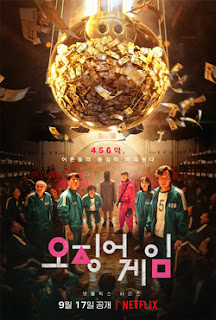Funny Games; psychological horror-thriller, Austria, 1997; D: Michael Haneke, S: Susanne Lothar, Ulrich Mühe, Arno Frisch, Frank Giering, Stefan Clapczynski
A married couple, Georg and Anna, travel with their little kid Georg Jr. to a desolate cottage in the forest. A young lad, Peter, shows up at their cottage, claiming to be the friend of their neighbors, and wants to borrow some eggs. Another lad shows up, Paul, feigning politeness, but refuses to leave the cottage. When Georg shows up, the two lad break his leg with a golf club, taking the family as their hostages in the cottage. Paul and Peter speak in riddles, ordering Georg and Anna to do trivial things, punishing them whenever they refuse. Georg Jr. flees during the night, but is caught by Paul, who confiscates his rifle. After another random game, Paul and Peter shoot Georg Jr. and leave. Anna manages to untie herself and run outside to try to get help, but is caught by Paul and Peter who return. The two criminals kill Georg with a knife and throw Anna from a boat. They then go to the neighbors to repeat the pattern.
Even though he received the most awards and acclaim for his drama films, Austrian director Michael Haneke will somehow stay remembered the most for his two peculiar excursions into the thriller genre in which he faithfully emulated Hitchcock's style, "Cache" and "Funny Games". The latter starts off like a typical drama, but 10 minutes in, when the psychopath Peter shows up at the door and enters the cottage, the movie establishes some unbearably chilly, alarming tone that never eases until the end. "Funny Games" is 98% atmosphere and only 2% violence, creating a peculiar amalgamation of static takes and threatening suspense caused through anticipation of fear—even more so, the violence is almost never shown, just implied or heard off screen (the sound of the dog howling after Peter and Paul presumably hit it off screen; the rifle shot; the knife stabbing). This is a highly disturbing, unsettling film, a one that you only see once and never again—probably because absolutely no context is given.
It is never explained why the two criminals are doing this to the family, leaving the viewers disoriented. Even in "A Clockwork Orange", the hoodlums have some motivation for assault, but here, no reason is given for the two criminals—they don't want money, they don't want to rape the mother, they just do these tortures because they can. And the viewers are just helpless voyeurs to these acts of cruelty. Several interpretations were presented to try to explain the story—maybe Paul and Peter, dressed all in white robes, represent the upper class oppressing the middle class; maybe they just symbolize the tendencies of a group having the urge to dominate over others; maybe it shows the audacity of modern evil, where the "invincible" think they can get away with anything due to their unlimited power, twisting everything to belittle their victims, 'gaslighting' as if it is the victims' fault for everything, while they present themselves as noble and just. However, none of these interpretations are fully satisfying. At a couple of moments, Paul looks into the camera, as if to talk to the audience, which is probably Haneke's take on the viewers who cannot resist watching violent horror films, and thus enabling these kind of films to be made in the first place. The ten minue long take of Anna freeing herself and wounded Georg, tied to chairs in the room, is masterful, whereas despite weirdness, the movie keeps you on the edge of your seat throughout. The major flaw is that all the characters are one-dimensional, and thus we do not find out much about the villains. "Funny Games" is a puzzling experience—it is a slasher art-film with actus reus, but without mens rea. As if it is telling us that violence itself is pointless and mindless, and doesn't even deserve the courtesy of explanation or rationalization.
Grade:+++











